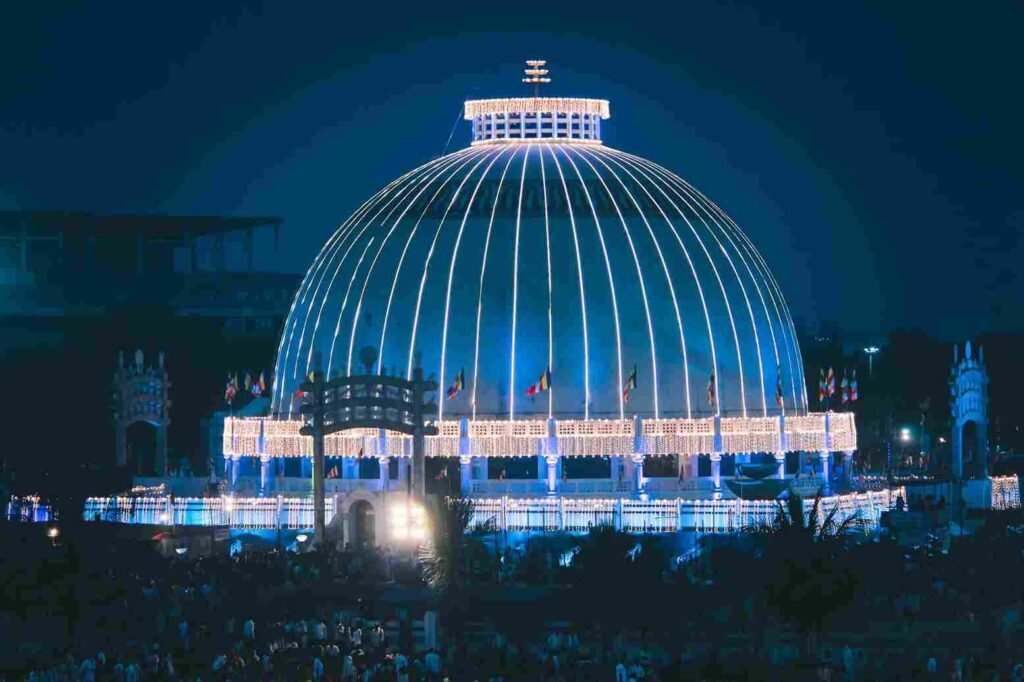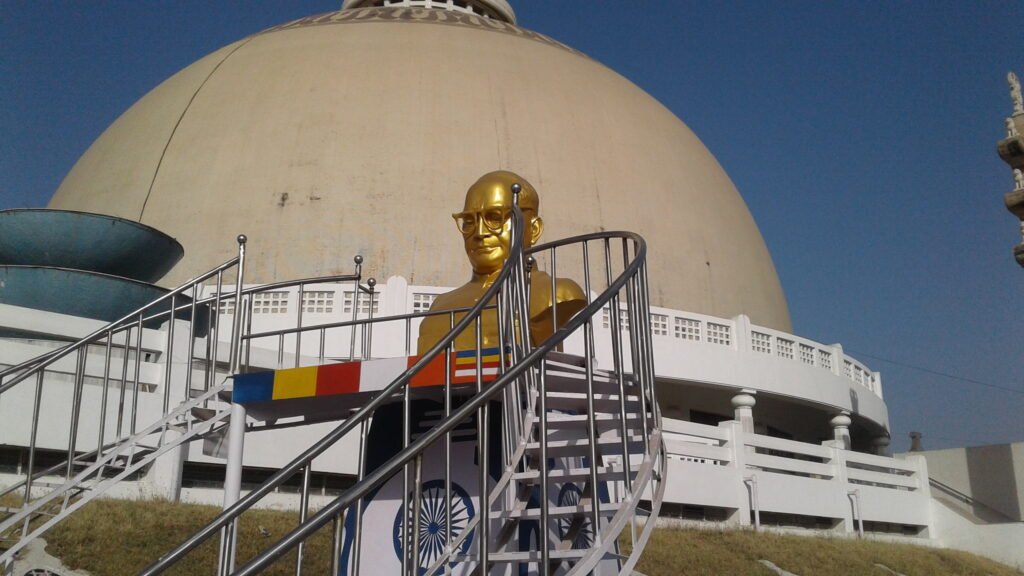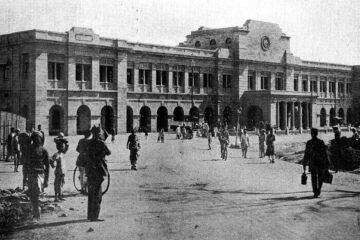Deekshabhoomi is a significant Buddhist monument located in Nagpur, Maharashtra, India. It holds great historical and spiritual importance and is a prominent pilgrimage site for Buddhists around the world. Here are some key details about Deekshabhoomi:

- Location: Deekshabhoomi is situated in the city of Nagpur, in the central Indian state of Maharashtra. It is located in the heart of Nagpur and is easily accessible.
- Historical Significance: Deekshabhoomi is historically significant as the place where Dr. B.R. Ambedkar, the chief architect of the Indian Constitution and a prominent social reformer, along with a large number of his followers, converted to Buddhism on October 14, 1956. This mass conversion was a pivotal moment in the Dalit Buddhist movement, which aimed to address social injustices and caste discrimination prevalent in India.
- Monument: The main attraction of Deekshabhoomi is the stupa, which is a large, white, and imposing structure. The stupa represents the symbol of Buddhism and serves as a place of meditation and reflection for visitors.
- Festivals: Deekshabhoomi is particularly crowded during important Buddhist festivals like Buddha Purnima and Dhamma Chakra Pravartan Din (the day of Dr. Ambedkar’s conversion). On these occasions, thousands of Buddhists from India and other countries gather here to pay their respects.
- Architecture: The architecture of Deekshabhoomi is inspired by traditional Buddhist designs. The stupa is adorned with intricate carvings and features a peaceful and serene ambiance.
- Museum: There is also a museum at Deekshabhoomi that showcases Dr. Ambedkar’s life and his contributions to social and political reform in India. It provides insights into his struggles and achievements.
- Visiting: Deekshabhoomi is open to visitors of all backgrounds and is not limited to Buddhists. It is a place where people can learn about the teachings of Buddhism, reflect on social issues, and find inner peace.
- Accessibility: Nagpur is well-connected by road, rail, and air. Visitors can easily reach Deekshabhoomi from the city center, and there are ample transportation options available.

Deekshabhoomi is not only a religious site but also a symbol of social justice and equality. It continues to draw people from diverse backgrounds who are interested in the life and work of Dr. B.R. Ambedkar and the principles of Buddhism.




